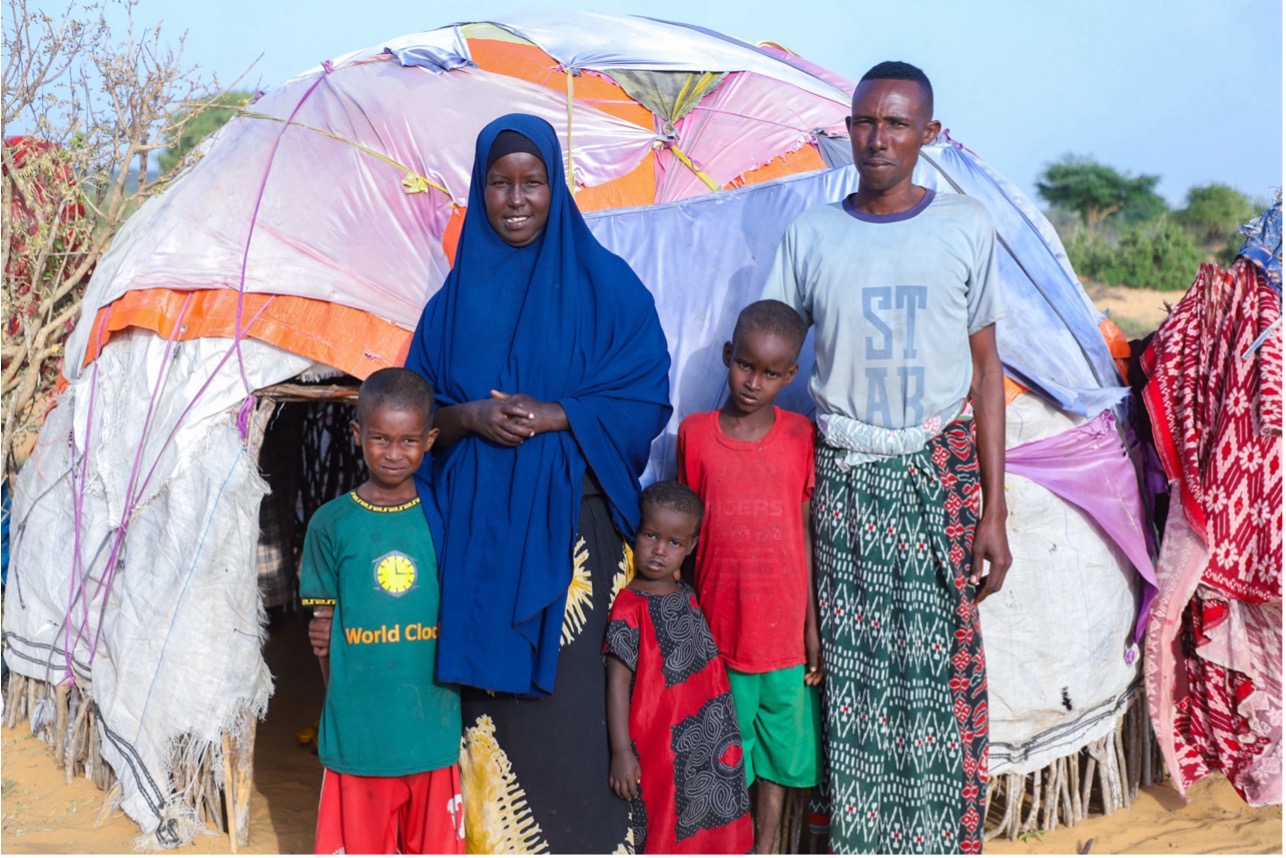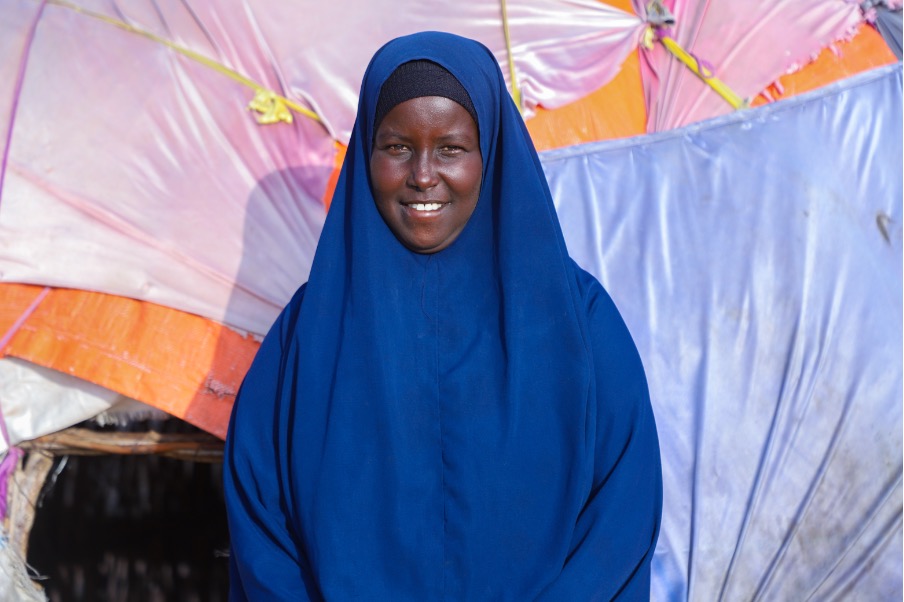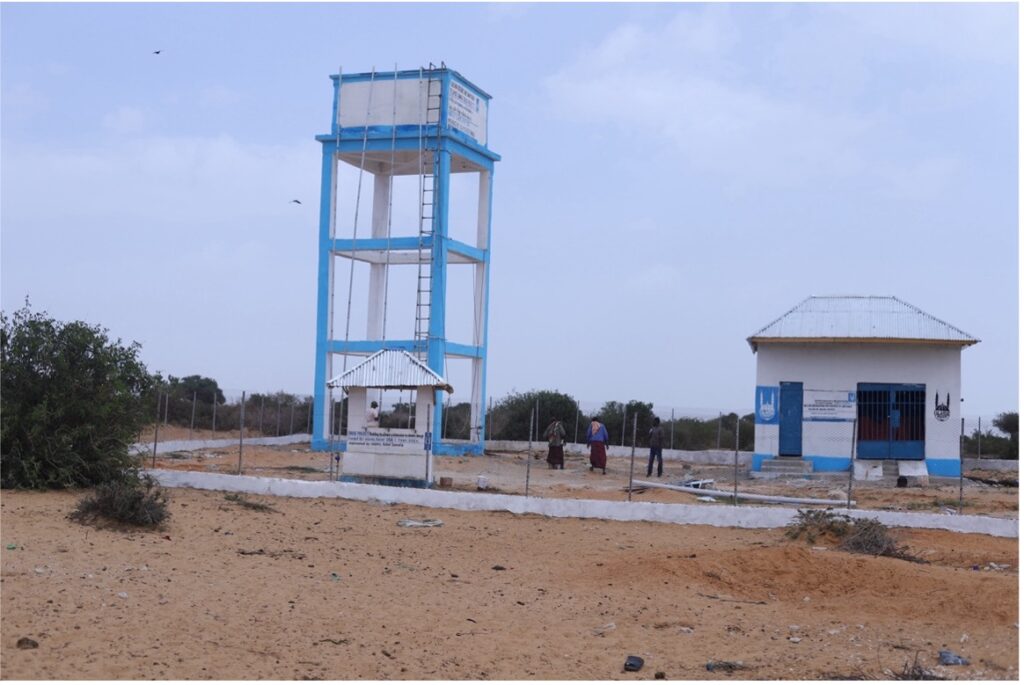
In Laba-Adle village, Somalia, Mulki’s days used to revolve around collecting water. Each morning, the 30-year-old would set out before dawn, her feet kicking up dust as she walked 8 kilometres to the nearest water source. When she returned, it would be with just enough water to last her 5 children another day.
But when droughts in her area worsened, Mulki joined the growing number of Somalis forced to buy water in plastic containers from distant towns, watching helplessly as the empty bottles piled up around their village.
“The water kept us alive, but the plastic was choking us,” Mulki says, standing beside the borehole that changed everything for her family.
Mountains of plastic
When drought soaks up natural water sources, people in this climate-vulnerable part of Somalia turn to packaged water – creating mountains of single-use plastics with little or no way to manage the waste.
Islamic Relief’s team saw this firsthand when launching the Building Resilience and Adaptation to Climate Change project in 2023. “We came to address water scarcity,” says project coordinator Abdifatah Adam. “But we quickly realised that we had to tackle 2 crises at once – both the lack of clean water and the growing plastic waste problem.”
The project drilled a new borehole, which did more than provide clean water – it broke the plastic dependency cycle. Where plastic waste once accumulated in toxic piles, the village became noticeably cleaner. And families, who once had to spend their meagre incomes on bottled water, had a little bit more money in their pockets thanks to their new sustainable water source.

A day in the new normal
Mulki’s morning routine has now transformed. At sunrise, she walks just minutes from her home to fill containers at the borehole, while her goats drink deeply from a trough nearby.
“Before, I spent 6 hours each day fetching water,” Mulki says. “Now I have time to milk the goats, sell the milk at market, and still help my children prepare for school.”
Mulki’s husband, Ahmed, tends their new vegetable garden, irrigated with borehole water, another change for the family.
These changes go beyond the family home. At the local market, plastic water bottles are becoming less common as more families gain access to safe, refillable water. Children now play where plastic waste once littered the ground. Most remarkably, the village has begun repurposing discarded plastic bottles as planters for drought-resistant crops, a grassroots innovation born from necessity.
The bigger picture
Standing by the borehole at dusk, Mulki reflects on how much has changed, and how far there is still to go. “We have water now, but our children need schools,” she says, watching her daughters chase fireflies. “We need healthcare. Better homes.”
These aren’t just development needs – they are the next frontiers in climate resilience. Access to education empowers communities with knowledge to adapt to a changing environment. Reliable healthcare helps families withstand the physical toll of drought, disease and displacement. Safe housing protects against climate extremes. Islamic Relief is already working on solutions that integrate these priorities, recognising that resilience goes beyond water, laying the groundwork for safer and more informed communities.
But for today, in this small village where plastic bottles no longer outnumber trees, there is hope where once there was only thirst.
This World Environment Day 2024, as global attention turns to ‘Ending Plastic Pollution’, This village’s story reveals an uncomfortable truth: our plastic waste crisis often begins where basic needs go unmet. In communities like Mulki’s, plastic water bottles were a desperate solution to the deeper crisis of water scarcity.

The implications are profound. While cleanup efforts remain vital, Somalia’s experience shows that the most effective solution to plastic pollution may lie upstream – quite literally. By addressing the root causes that force communities to rely on disposable plastics, we can stop the problem at its source. Islamic Relief’s borehole project demonstrates this powerfully: where sustainable water systems exist, plastic waste reduces.
As we mark World Environment Day, perhaps our greatest opportunity lies not just in cleaning up plastic waste, but in removing the need for it altogether – one community, one water source at a time.
Mulki’s story shows what’s possible. With your help, we can turn this single borehole’s success into a wave of change. Donate today to support bringing sustainable solutions to more communities, because no mother should have to choose between her family’s survival and the planet’s health.



